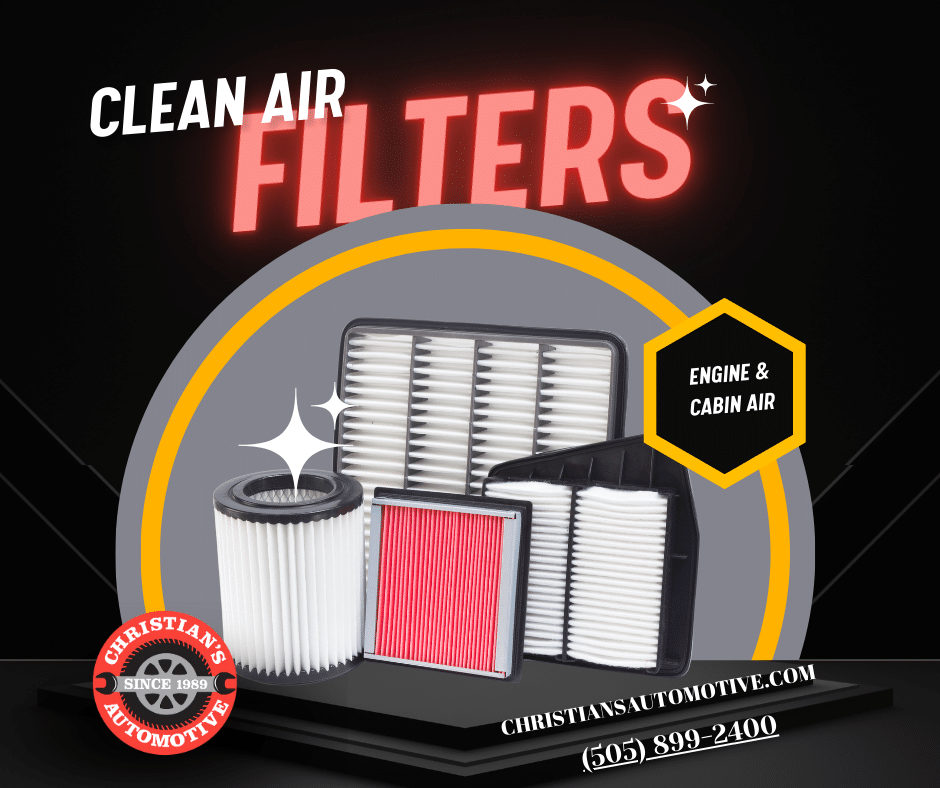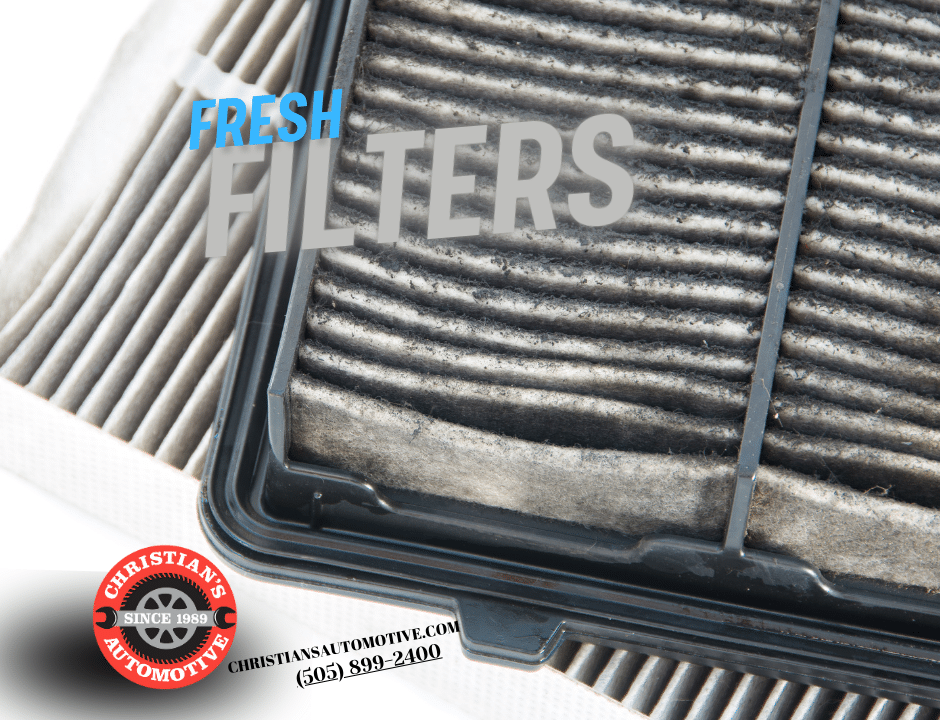
Spring Into Vehicle Maintenance: A Comprehensive Guide to Battery Care, Wiper Blades, and Tire Pressure
April 1, 2024
No Fuel, No Fire – The Fuel Filter delivers clean fuel
April 8, 2024Auto Care Month – Air Filters
As the season shifts into the vibrant landscape of spring, it’s an opportune moment for vehicle owners to delve into an often-overlooked aspect of car maintenance: air filtration. The engine and cabin air filters play pivotal roles in not only maintaining your vehicle’s performance but also ensuring the air you breathe is clean. In this article, we’ll explore why these filters are crucial and how regular maintenance can contribute to a healthier, more enjoyable driving experience.
Engine Air Filters: The Lungs of Your Vehicle
Think of the engine air filter as the lungs of your vehicle. Located in the air intake system, its primary function is to prevent dust, dirt, and other environmental pollutants from entering the engine. A clogged or dirty engine air filter can lead to myriad issues, including reduced fuel efficiency, decreased acceleration, and, in severe cases, engine damage.
Regular checks are essential, especially if you frequently drive in dusty or polluted environments. A general rule of thumb is to inspect your engine air filter every 12,000 to 15,000 miles, but this can vary based on your vehicle’s make and model, as well as driving conditions. A clean engine air filter ensures that your engine “breathes” properly, optimizing combustion processes and, consequently, improving performance and fuel economy.
Cabin Air Filters: A Shield Against Pollutants
While the engine air filter safeguards the heart of your vehicle, the cabin air filter protects the interior – and more importantly, you and your passengers. Positioned in the ventilation system, it filters out harmful pollutants, allergens, and dust before they enter the cabin, providing you with cleaner air to breathe.
The importance of a clean cabin air filter cannot be overstated, especially for individuals with allergies or respiratory issues. It significantly enhances the air quality inside your vehicle, making drives more pleasant and healthier. Symptoms of a dirty cabin air filter include reduced airflow through the HVAC system, unpleasant odors, and increased allergen presence inside the vehicle.
Recommendations for replacing the cabin air filter vary, with a common interval being every 12,000 to 15,000 miles. However, this can be influenced by factors such as air quality and usage patterns. Regular replacement not only ensures a healthier cabin environment but also maintains optimal functioning of your heating and cooling systems.
The Impact of Neglect
Neglecting air filter maintenance can have tangible impacts on both your vehicle’s performance and your health. For the engine, a dirty air filter restricts airflow, straining performance and potentially leading to higher fuel consumption and emissions. Inside the cabin, an overdue filter can become a breeding ground for bacteria and mold, compromising air quality and exacerbating health issues.
As we embrace the freshness of spring, let’s not overlook the fresh air within our vehicles. Engine and cabin air filters are fundamental components that demand our attention. By ensuring these filters are regularly inspected and replaced when necessary, we not only enhance our vehicle’s performance and efficiency but also take a significant step towards healthier, more enjoyable driving experiences. Remember, clean air filters mean a cleaner engine and a cleaner you.




